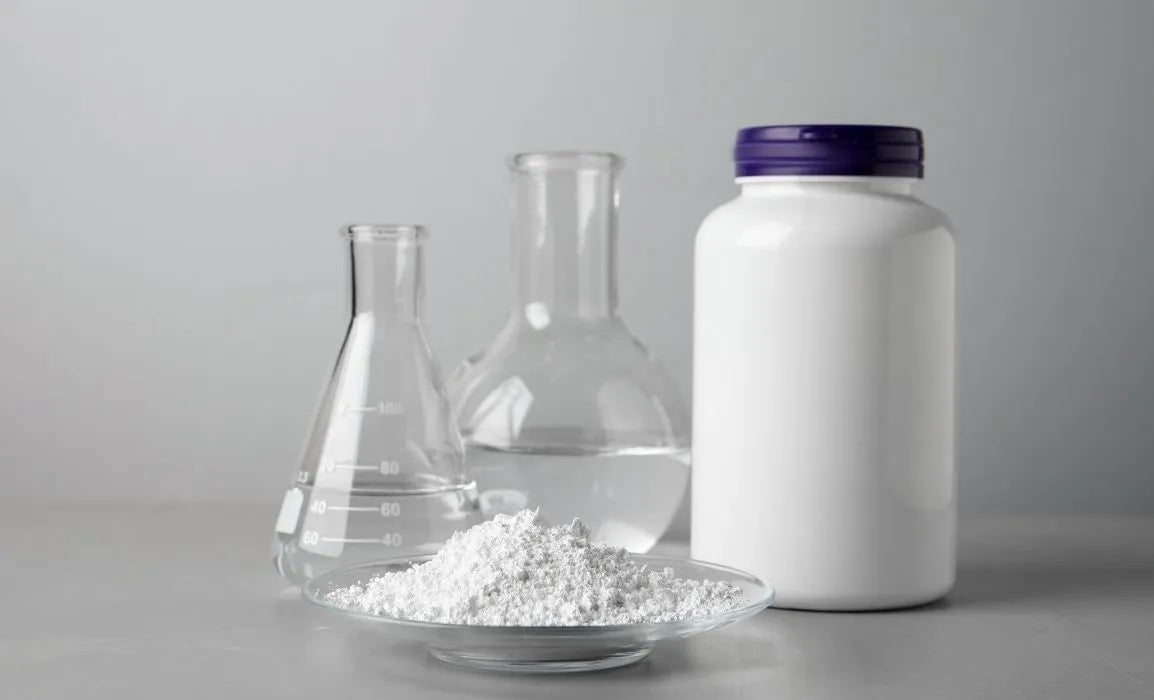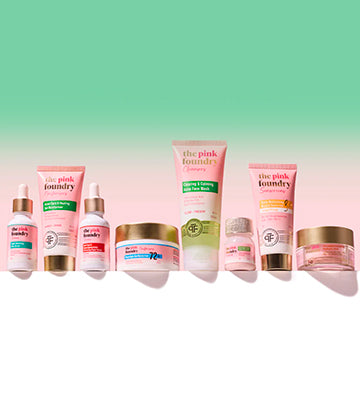Dicaprylyl Carbonate in skincare

Introduction
Dicaprylyl carbonate is colourless and almost odourless. It softens and smoothens the skin. In spite of it being an oil, there is no greasiness on the surface when it is used. Furthermore, it enhances the spreadability of formulations.
What is dicaprylyl carbonate?
Dicaprylyl carbonate can be synthetic and natural, either animal or plant derived. In plant-based derivatives, dicaprylyl carbonate is obtained from caprylic acid found in palm kernel oils and coconuts. However, skincare and cosmetic products usually utilise a synthetic form of this ingredient. It is a diester of carbonic acid and caprylyl alcohol.
What does dicaprylyl carbonate do in skincare products?
The application of dicaprylyl carbonate in skincare is quite numerous. This substance may serve as a skin conditioner, solvent and emollient to improve the properties of various skincare products. It works as a dry lubricant. Moreover, it is also a skin conditioner that leaves the skin smooth but non-greasy. Dicaprylyl carbonate also functions against dehydration of the skin. Alternatively, it does not cause acne because it is non-comedogenic.
Also read: What does non-comedogenic mean?
Dicaprylyl carbonate benefits in skincare
Dicaprylyl carbonate benefits are numerous when used in skincare products:
- Easy to apply and replaces silicones: Being easily spreadable on the skin makes dicaprylyl carbonate very good for application procedures. It does not have the drawbacks of silicone but provides a similar smoothness.
- Improves emulsification efficacy: When applied to the skin, it does not make it oily but rather gives a dry or velvety feeling. When used as part of a formulation, it also improves emulsification efficacy, enhancing how silky the formula feels.
- Great for removing makeup and cleansing the face: Dicaprylyl carbonate is a great makeup remover. This ingredient removes all traces of dirt from your skin with ease and efficiency when combined with other substances. Also, by using dicaprylyl carbonate, one can improve facial cleanser's effectiveness in lifting off impurities and makeup.
- Balance out denser oils: Its light and non-viscous nature helps balance out denser oils in skincare products, which makes them less greasy-feeling and more pleasant to apply.
Precautions while using dicaprylyl carbonate
There are several key precautions you should put into consideration when using products with dicaprylyl carbonate. Some of them include:
- Patch test: Before trying out a new product that contains dicaprylyl carbonate, it's good to do a patch test. Apply a small amount to a tiny area of your skin and wait for 24 hours to see if there's any irritation or allergic reaction.
- Skin sensitivity: Take note of how your skin reacts to this product if you have sensitive skin or a tendency towards acne. Although dicaprylyl carbonate usually does not clog pores, it can cause various reactions on different skins.
- Avoid broken skin: As long as no dermatologist tells you, do not apply any dicaprylyl carbonate-containing products on damaged or broken skin.
- Eye contact: Keep these out of your eyes and in case they somehow contact them, wash with water immediately.
- Consult a dermatologist: Before using any skincare products that contain dicaprylyl carbonate, get medical advice.
- Storage: To maintain the effectiveness, store creams and lotions with dicaprylyl carbonate as directed by the manufacturer, which is away from direct light in cool, dry places.
Conclusion
Dicaprylyl carbonate is an almost colourless and odourless ingredient that is used in the skincare industry to make skin soft without giving them a greasy feel. This really makes it unique for those who have a skincare regimen with heavy bases. For example, whether they are synthetic or plant-based, this ingredient helps spread the product over the face while leaving it feeling silky smooth rather than oily. Furthermore, it will not clog your pores since it's non-comedogenic. Thus, you won't develop acne due to using such products in high ratios above 34.5% in leave-on products.


























































